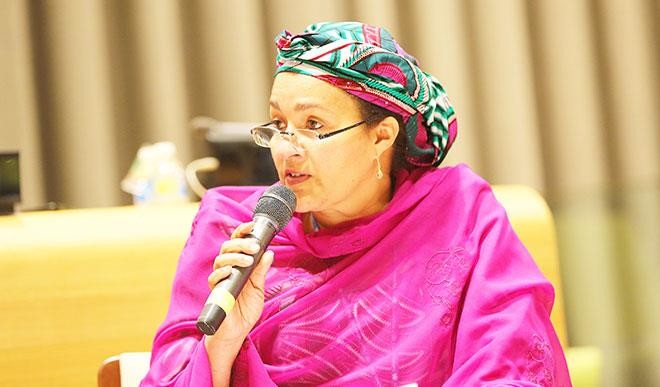Nigerian rivers among top 20 polluting rivers
Three rivers from Nigeria including the Imo, Cross River and Kwa ibo are among the top 20 polluting rivers accounting for 67 per cent of global plastic inflow into the ocean. A study published by Nature entitled River Plastic Emissions to the World’s Oceans estimated that between 1.15 and 2.41 million tonnes of plastic waste […]


Three rivers from Nigeria including the Imo, Cross River and Kwa ibo are among the top 20 polluting rivers accounting for 67 per cent of global plastic inflow into the ocean.
A study published by Nature entitled River Plastic Emissions to the World’s Oceans estimated that between 1.15 and 2.41 million tonnes of plastic waste currently enters the ocean every year.
The Imo River is in southeastern Nigeria and flows 240 kilometres into the Atlantic Ocean. Its estuary is around 40 kilometres wide, and the river has an annual discharge of 4 cubic kilometres with 26,000 hectares of wetland while the Kwa Ibo River is a river that rises near Umuahia in Abia State, Nigeria, and flows in a southeastern direction through Akwa Ibom State to the Atlantic Ocean.
The content of the study is generating global concern as the world gathers for the 3rd edition of the United Nations Environment Assembly which opened in Nairobi, Kenya (Dec.4) to take a look on how to reduce pollution.
According to the report which had estimates for lower mass input and upper mass input, the Kwa ibo River discharges 92,900 tonnes of plastic under the lower mass input category and 20,800 tonnes at the upper mass input category.
On the Imo River, the discharges include 17,500 tonnes at the lower mass input and 36,000 tonnes at the upper mass input level. River Cross discharges 33,600 tonnes of plastic into the ocean annually at the lower mass input level and 65,000 tonnes at the upper mass input.
Nigeria is the only African country which rivers featured in the top 20 polluters and this has been attributed to the nation’s huge population.
Dr Peter Kershaw of the Joint Group of Experts on the Scientific Aspects of Marine Environmental Protection (GESAMP), a United Nations advisory body, said that Nigeria population may be responsible for the huge inflow of plastics from the countries rivers emptying into the ocean.
Another reason he cited was the lack of an efficient waste management system in the country.
